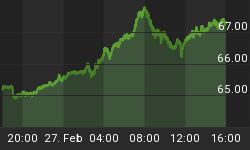"I believe in people. I believe most people are rational." - Brian Wesbury, as appeared on CNBC June 20th
Earlier this week economists Gary Shilling and Brian Wesbury squared off on CNBC to discuss the current state of the housing market. Wesbury, the younger and far more frequent guest over the past eight years, was bullish: the market is simply "correcting back to normal." Shilling, the bear, subscribes to the housing bubble theory. As evidence, last year 40% of home sales were speculative in nature - that is, to second home buyers and investors. According to Shilling, it would take a 35% drop in housing prices to restore the long-term balance between median home prices and the Consumer Price Index. What caught our attention was the essence of Wesbury's assuredness: there never was a bubble because most people are rational.
In a sense, Brian Wesbury is right. Man tends to act rationally to pursue his own interests and remove discomfort. Markets would fail if man always acted randomly and without purpose. Imagine a household attempting to minimize its income and maximize prices paid at the grocery store. Its members would quickly perish. From 2001-2004 the Federal Reserve put the price of mortgage credit on sale as it drove short-term interest rates through the floor. Can existing and would-be homeowners be faulted for lining up in droves?
A long-time friend from Scottsdale, Arizona (inventories up ten-fold the past year) points out a distinction in the behavior of the debtor class. Some have clearly acted responsibly: they consolidated their debts into tax deductible mortgages, locked in the lowest long-term rates in 40 years, and tossed the interest savings into their rainy day and investment jars. From a consumption standpoint, little has changed except that these old school borrowers pocketed a windfall compliments of their friendly neighborhood central banker.
Others - to put it mildly - have gotten carried away. Mortgage equity withdrawal (a.k.a. going deeper into debt) was roughly $2.2 trillion over the past three years. Homebuying on margin (peddled as "the American dream") greatly expanded in the credit-challenged "subprime" strata. Debt service costs (household financial obligations at nearly 19% of disposable personal income) have never been higher, even with generously low interest rates.
Thanks to the young and reckless, today housing's vital signs look less than encouraging:
- 29% of mortgages assumed in 2005 are now underwater.
- 16% of those with mortgages pay over half of their income on housing, up from 2% five years ago.
- 22% of the $9.3 trillion residential mortgage market is now subprime.
- $2.7 trillion of adjustable-rate mortgages are expected to reset in the next 18 months with payments increasing on average 45%.
- Total home inventories and the inventory/sales ratio are at record highs.
On Main Street, Madison Avenue, and especially Wall Street, anything worth doing is worth overdoing. A good idea inevitably wilts under the sunlight of too much attention. So, too, the mortgage refi bloom is succumbing to over-exposure.
Man tends to act rationally until you place him in a group and offer him something for nothing. Over a century and a half ago Charles Mackay, in his classic Extraordinary Popular Delusions and the Madness of Crowds, observed that "men go mad in herds." 130 years later historian Barbara Tuchman, in The March of Folly, chronicled the recurrent "pursuit of policy contrary to self interest" from the Battle of Troy to the Vietnam War. More recently Bill Bonner co-authored two highly readable and entertaining books crash testing his theory on human progress: in science and technology man tends to learn; in love, finance, and war he makes the same mistakes over and over. This play of perpetual blunder has many acts: fear, skepticism, rationalization, exuberance, denial, resentment, and finally resignation. Only the actors change.

For some, folly is a participatory sport, while others choose to watch from the sidelines. Gary Shilling has been around long enough to see this game before. He recognized the manias of Japan in the late '80s and tech-land in the late '90s. He now claims the mortgage market went manic after the Greenspan Fed opened the credit spigot to fend off a deflating tech balloon in 2001. We have no knowledge of Brian Wesbury's view on "Japan, Inc." in 1989, though six years ago he jumped on the New Economy bandwagon. Today he dismisses the housing naysayers and assures us that the market is "pulling back to normal."
We have little doubt who's crystal ball is more popular with CNBC viewers.















